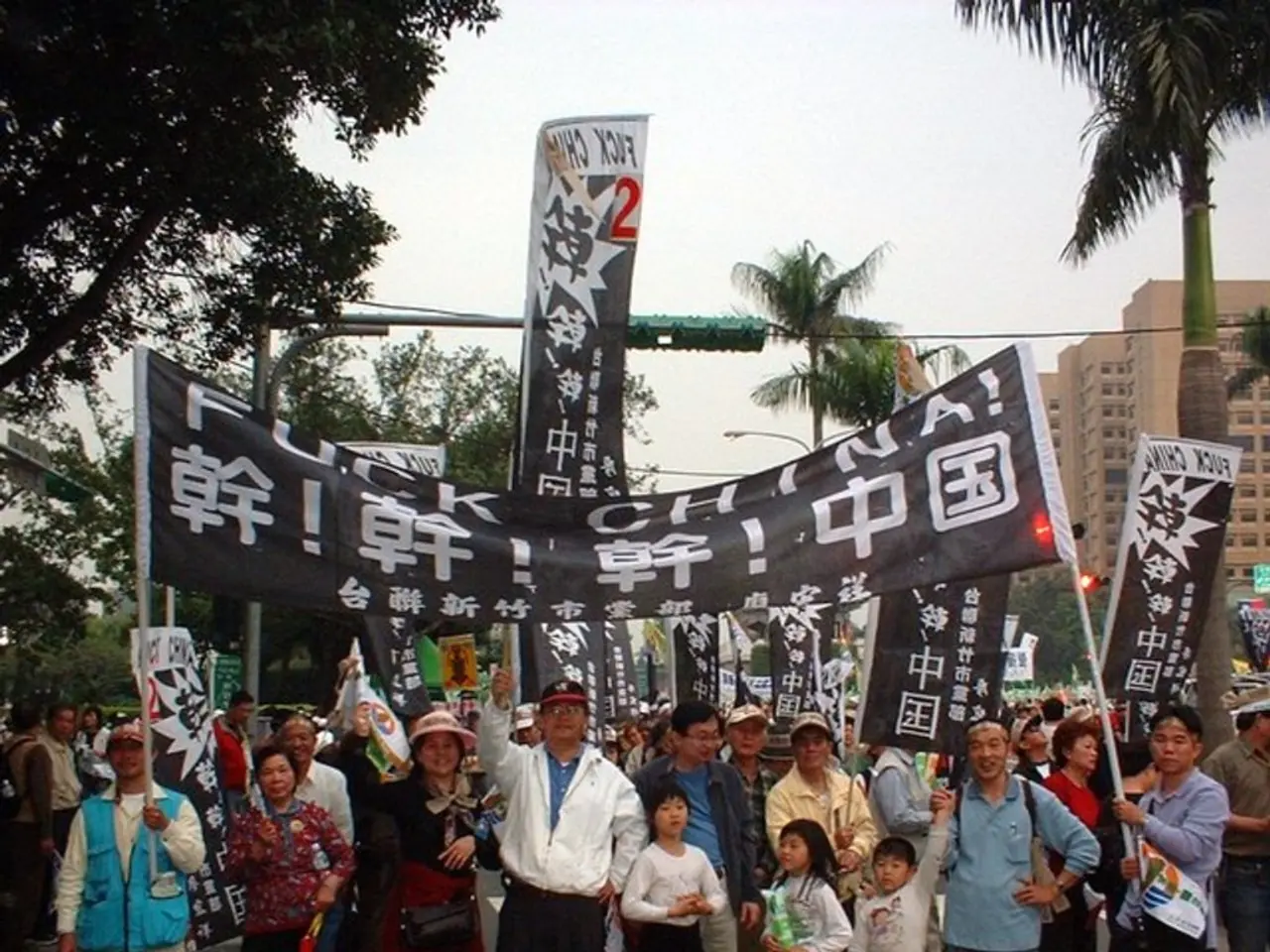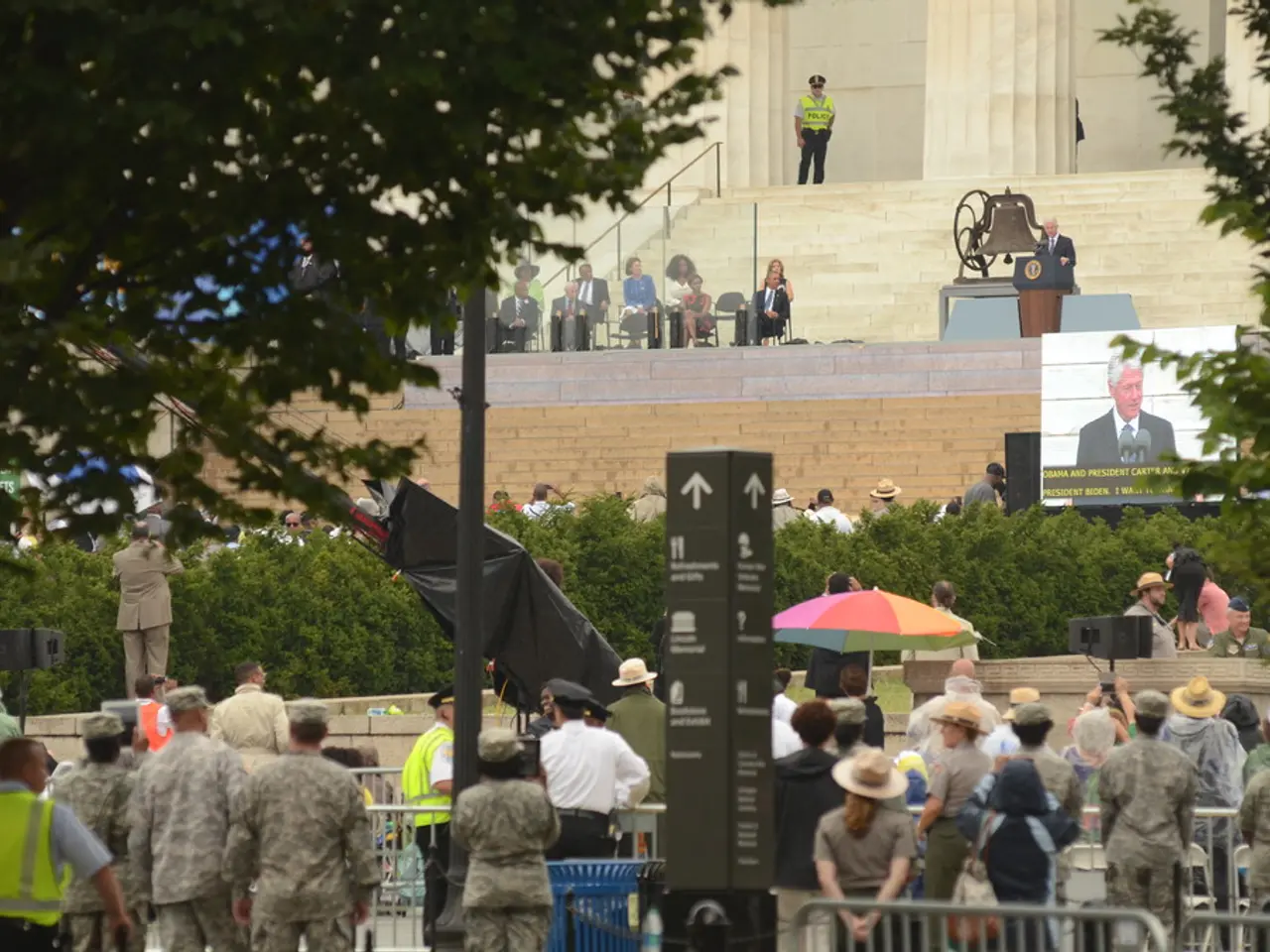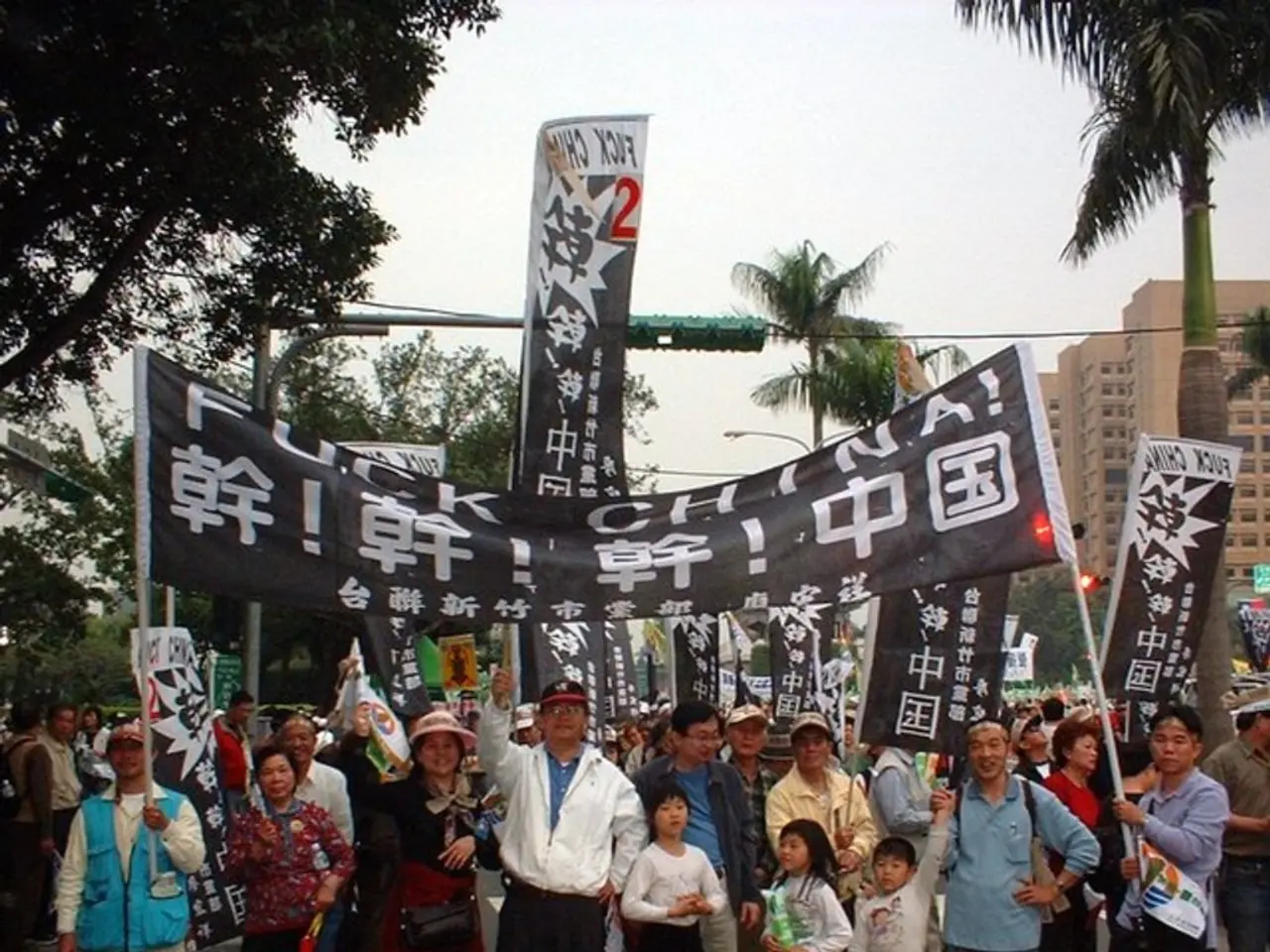Raging fury and overwhelming despair over exorbitant living expenses in Luanda
In the heart of Angola, the capital city of Luanda, has been gripped by unrest as citizens take to the streets to voice their dissatisfaction with the government's economic policies. The protests, sparked by a third increase in diesel prices and a corresponding hike in transportation costs, have resulted in widespread violence, property damage, and numerous arrests.
The demonstrations began peacefully, but escalated into violent confrontations involving looting, vandalism, and clashes with security forces. The Angolan police and army responded with tear gas, rubber bullets, and physical force, leading to injuries and arrests. According to official figures, over 1,200 people have been detained, and the death toll varies by source, with reports ranging from 4 to 22 fatalities.
The government's handling of the protests has been met with criticism, with accusations of excessive use of force, arbitrary arrests, and suppression of peaceful dissent. Human Rights Watch has called for impartial investigations and accountability for abuses during the demonstrations.
The unrest in Luanda reflects a broader economic struggle faced by many Angolans. Despite the country's wealth in resources such as oil, gas, diamonds, and minerals, the vast majority of the population continues to grapple with economic hardship. The recent increase in diesel prices, which has led to a 50% hike in taxi fares, has added to the financial burden of everyday life.
The protests mark a significant challenge to the ruling People's Movement for the Liberation of Angola (MPLA), which has been in power since the country's independence 50 years ago. The MPLA managed to secure a narrow absolute majority in the last multi-party elections three years ago, but the recent unrest indicates growing public frustration and political tension.
The government, led by President João Lourenço, has highlighted the fight against corruption in public offices and cooperation with the International Monetary Fund (IMF) as part of its efforts to address the country's economic difficulties. However, these measures have not been enough to quell the public discontent.
As the city continues to reel from the aftermath of the protests, the government faces calls for policy and governance reforms to address the deep economic grievances that have led to the unrest. The situation in Luanda serves as a reminder of the ongoing struggle for economic justice and political stability in Angola.
References:
- BBC News. (2023, March 2). Angola protests: Dozens killed in Luanda unrest. [online] Available at: https://www.bbc.co.uk/news/world-africa-58848005
- Al Jazeera. (2023, March 3). Angola: Protests in Luanda leave at least 22 dead, hundreds arrested. [online] Available at: https://www.aljazeera.com/news/2023/3/3/angola-protests-in-luanda-leave-at-least-22-dead-hundreds-arrested
- Reuters. (2023, March 3). Angola protests: Police fire tear gas as anger over fuel price hike grows. [online] Available at: https://www.reuters.com/world/africa/angola-protests-police-fire-tear-gas-anger-over-fuel-price-hike-grows-2023-03-02/
- Human Rights Watch. (2023, March 3). Angola: Police Use Excessive Force, Arrest Hundreds During Protests. [online] Available at: https://www.hrw.org/news/2023/03/03/angola-police-use-excessive-force-arrest-hundreds-during-protests
The escalating protests in Luanda, fueled by the government's economic policies and a rise in diesel prices, have led to a general-news situation of widespread violence, property damage, and numerous arrests, sparking criticism and calls for policy and governance reforms. The ongoing unrest is a reflection of the broader economic struggle faced by many Angolans and a significant challenge to the ruling People's Movement for the Liberation of Angola (MPLA), highlighting the need for addressing the deep economic grievances that have led to the political tension.







